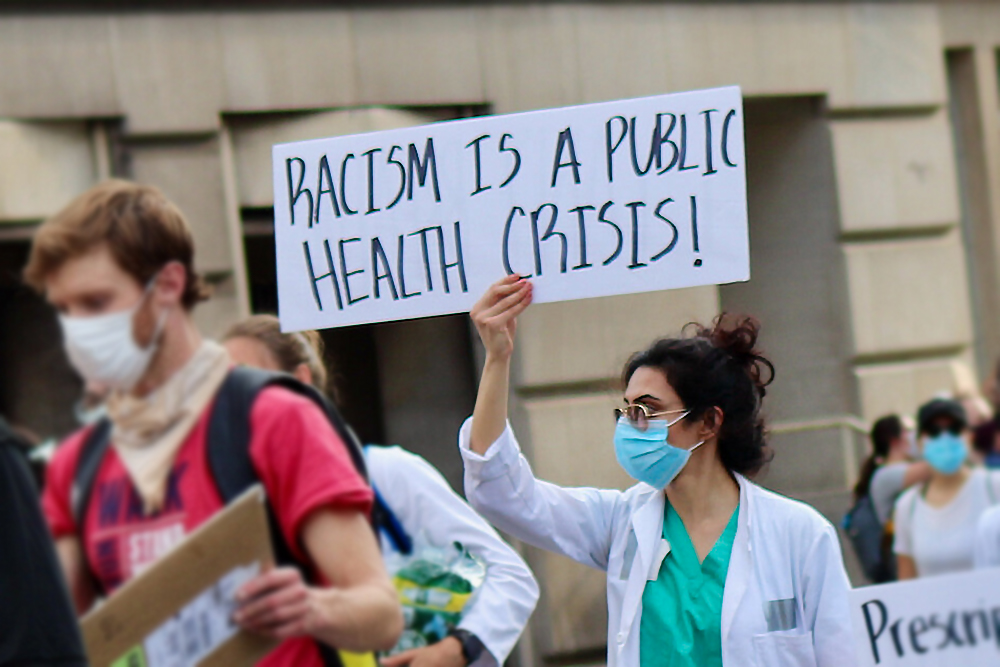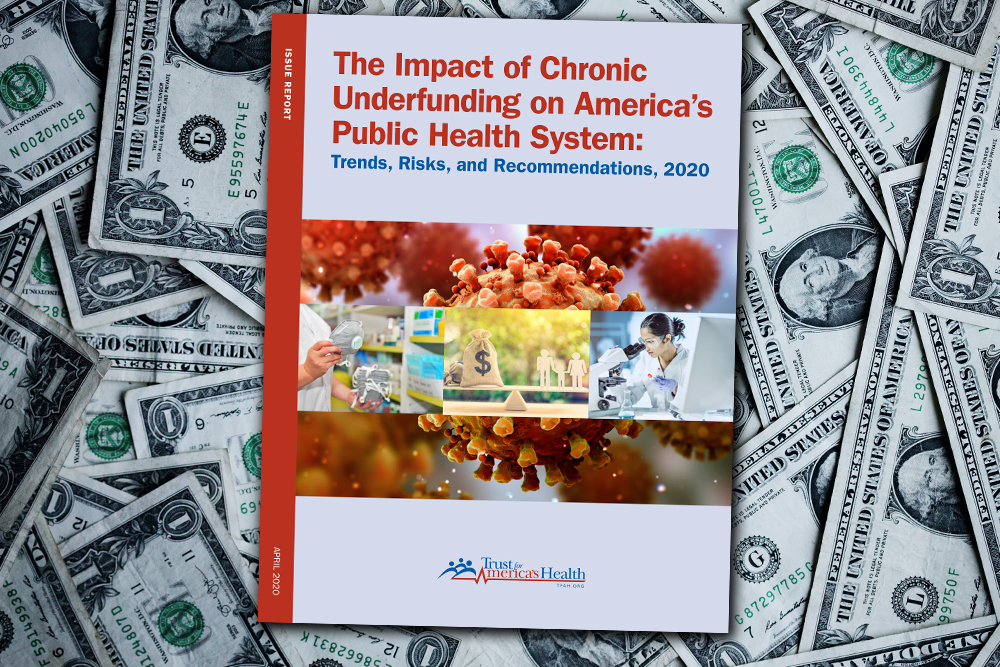February 23, 2021. This one-hour webinar, which is part of the Hot Topics series, reviews how the Tacoma-Pierce County Health Department began to apply a racial equity lens to their existing health equity work and how other agencies can get started too.
Learning Objectives
- Consider the importance of focusing on policy, systems, and environmental changes to address racism’s impacts on health.
- Identify the key strategies and objectives of the Tacoma-Pierce County Health Department’s Racism, Resilience and Action Response Team.
- Summarize the Racism, Resilience and Action Response Team’s achievements after the local board of health declared racism a public health crisis and directed the health department to take specific actions to address it.

January 26, 2021. This one-hour webinar, which is part of the Hot Topics series, reviews the nuances of local governance in Washington state to better understand the financial, political, and cultural factors that influence local public health oversight.
Learning Objectives
- Understand the nuances of local governance in Washington state, with an emphasis on the community response to local public health decisions during the COVID-19 pandemic.
- Describe the financial, political, and cultural factors that influence and drive local public health oversight.
- Gain insights and strategies for addressing local and state policies that impact public health governance.

December 15, 2020. This one-hour webinar, which is part of the Hot Topics series, considers how to frame vaccine issues and promote responsible media coverage.
Learning Objectives
- Describe the role of message framing in driving the public’s understanding of vaccines.
- Consider research-based principles related to framing vaccine coverage.
- Discuss opportunities and strategies for improving media coverage of vaccines.

November 23, 2020. This one-hour webinar, which is part of the Hot Topics series, reviews how public health professionals can make sure accurate messages cut through an abundance of information and help steer the public conversation.
Learning Objectives
- List key elements that nurture the rise of false and misleading information, like uncertainty and mistrust.
- Understand the connections between COVID-19 and climate change conspiracy theories and messaging.
- Consider how to apply findings and strategies from the latest research on the psychology of misinformation to your communications work.

October 27, 2020. This one-hour webinar, which is part of the Hot Topics series, explores strategies for building trust and confidence in local public health.
Learning Objectives
- Describe the unique characteristics of Idaho’s South Central Public Health District and how COVID-19 has impacted its people and industries.
- List key leadership strategies for building trust with elected officials, community partners, and the public to address the health risks associated with a pandemic.
- Consider lessons learned for navigating the politics of a pandemic.

September 29, 2020. This one-hour webinar, which is part of the Hot Topics series, reviews how health departments can partner with businesses on prevention and health promotion.
Learning Objectives
- Understand health equity issues related to small worksites in low-wage industries and their employees.
- Describe the goals and the work of the Connect to Wellness program.
- Describe opportunities for health departments to use Connect to Wellness to engage with local employers.

August 31, 2020. This one-hour webinar, which is part of the Hot Topics series, reviews the investments needed to build a modern public health system.
Learning Objectives
- Describe historical trends associated with disinvestment in core public health services.
- Identify the risks of disinvesting in public health in light of current crises like COVID-19.
- Consider policy actions to reverse trends of disinvestment and improve the nation’s public health infrastructure.

July 29, 2020. This one-hour webinar, which is part of the Hot Topics series, explores equity-focused leadership skills for the COVID-19 crisis.
Learning Objectives
- Describe public health leadership challenges in the context of COVID-19 and racism crises.
- Identify the range of health challenges presented by different inequities in rural America, as identified in Alaska.
- Identify equity-focused leadership and communication strategies for addressing challenges related to today’s health crises.
- Describe how tribal sovereignty, federal responsibilities, and state regulatory authorities interact related to public health in Alaska.

June 30, 2020. This one-hour webinar, which is part of the Hot Topics series, explores the root causes of COVID-19 health inequities.
Learning Objectives
- Describe the origins of health equity work in King County, Washington.
- Review new data about COVID-19 that reveal its disproportionate impacts on communities of color.
- Explore strategies for addressing structural racism and strengthening resilience in underrepresented communities.

May 27, 2020. This one-hour webinar, which is part of the Hot Topics series, explores how mentoring is an important tool for developing leaders and building more equitable public health organizations.
Learning Objectives
- Describe the need for formal mentorship in the current era of public health practice.
- Discuss the importance of equity and inclusion in mentorship and how to put these values into practice.
- Preview a new online resource for strengthening mentorship in public health agencies of all sizes.

April 28, 2020. This one-hour webinar, which is part of the Hot Topics series, reviews a unique community partnership for addressing the COVID-19 response.
Learning Objectives
- Consider the benefits and challenges of forming and working with a public-private-community leadership group in a rapidly evolving public health crisis.
- Identify practical mechanisms to maximize timely two-way information sharing and feedback with community partners.
- Review strategies for centering equity and those at higher risk of experiencing the serious health and economic impacts of a pandemic.

March 31, 2020. In this one-hour webinar, which is part of the Hot Topics series, Claire Tollefsen, Digital Media Specialist for the Oregon Health Authority, shares strategies for addressing trending topics on social media.
Learning Objectives
- Consider why social media is an important organizational tool for communicating directly with key audiences.
- List two ways to analyze and build an audience on a social media platform.
- Review tools that help organizations hone their social media persona and establish their reputation as a trusted source for public health information.

February 27, 2020. In this one-hour webinar, which is part of the Hot Topics series, two attorneys explore the legal and ethical issues related to public health data use.
Learning Objectives
- List two ways the law can be an effective tool to support public health data sharing.
- Consider how ethics are used to identify and resolve dilemmas about what should be done in morally complicated situations.
- Compare and contrast frameworks for bioethics and public health ethics.
- Review which ethical framework is more appropriate for public health data sharing.

January 28, 2020. In this one-hour webinar, which is part of the Hot Topics series, two leaders from Idaho review why local public health agencies should be involved in mental and behavioral health issues and the role they can play in rural suicide prevention.
Learning Objectives
- Understand the importance of community health assessments and improvement plans in bringing awareness to suicide as a local problem.
- Identify three stressors in rural communities that contribute to their increased suicide rates.
- Identify three community interventions that focus on reducing the suicide rate at the local level.
- Consider the successful elements needed for building a local suicide prevention coalition.

December 18, 2019. This one-hour webinar, which is part of the Hot Topics series, reviews vaping-related products, health impacts, and prevention efforts underway in Washington State.
Learning Objectives
- Review recent data and trends on the youth vaping epidemic in Washington State.
- Review the latest details of the national investigation into Vaping-Associated Lung Injury.
- Consider executive and legislative actions, both nationally and in Washington State, for limiting youth and young adult access to vapor products
